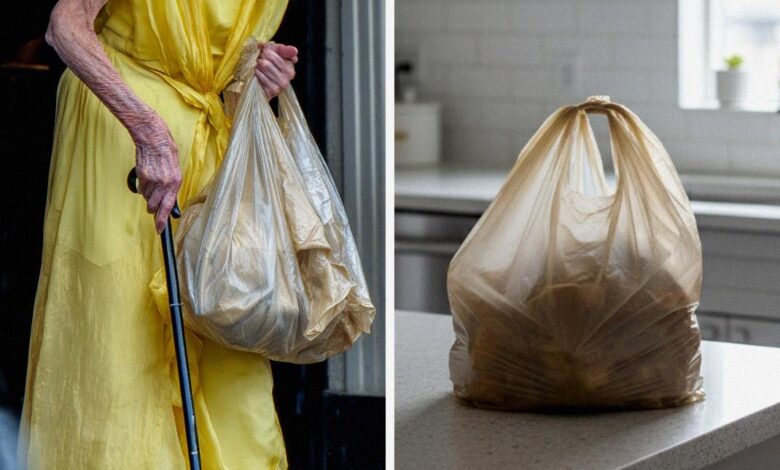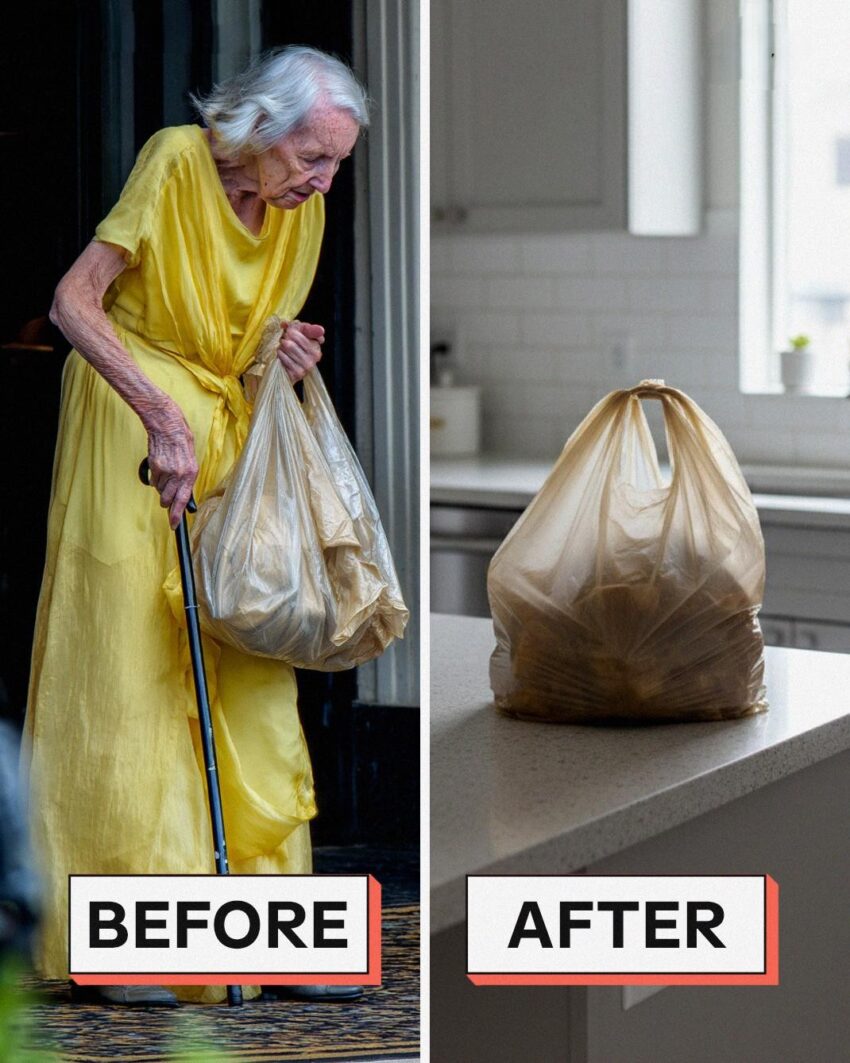
I spent more of my childhood at Grandma Jen’s cottage than at my parents’ house. My parents, Miranda and John, were always busy — trading time for status, chasing something bigger, something shinier. But Grandma’s little home at the edge of town was where life felt simple. The porch creaked, lavender filled the air, and the floorboards groaned when you walked across them. It wasn’t fancy, but it was safe.
Every morning before school, Grandma braided my hair, humming softly as her hands worked through the tangles. The braids were never perfect, but I loved how they felt — like she was wrapping care into each strand. In the evenings, she’d cook the same warm meals: soft potatoes with pepper, green beans with butter, scrambled eggs with sausages. She never followed recipes. She cooked with instinct, not rules.
“These are the meals that stick to your bones, my Rachel,” she’d say.
After dinner, she’d hand me a small bowl of walnuts, already cracked and cleaned. “Eat these, sweetheart. They’ll make your heart stronger.”
She wasn’t wrong to say that — I was born with a congenital heart defect. By seven, I’d had several surgeries. My chest carried a pale scar, the kind that made me tug my shirt up higher than other girls did. But Grandma never looked at me like I was fragile. With her, I wasn’t a patient; I was her girl.
Then I grew up. And somewhere along the way, I forgot her.
My parents’ money started showing up in my life like trophies — private schools, designer clothes, European vacations. Grandma’s little cottage, once a sanctuary, began to feel outdated. I stopped visiting as often. When I did, I scrolled through my phone and half-listened as she talked. Once, I even walked in and muttered, “It smells like old people in here.”
She smiled and said, “That’s lavender and rosemary, honey. You used to love it.”
I didn’t answer. I opened a window.
She still called every week, asking if I was eating well and taking my medicine. She always ended with the same words: “Be kind, sweetheart. The world’s already too cruel.”
I never said “I love you” back. I just said I was busy.
When I got engaged to Grant — rich, polished, perfect — my wedding became a production: five hundred guests, a waterfront venue, floral arches that looked like movie sets. I didn’t want Grandma there. She didn’t fit in that world. But my mother insisted, “She raised you, Rachel. Invite her.”
So I did, reluctantly.
On the wedding day, she arrived looking completely out of place. Her old blue dress was neat but faded. Her shoes didn’t match. In her hand, she carried a worn cloth bag with frayed edges and a brown stain near the zipper.
She found me, smiling as though she’d waited her whole life for that moment. “My Rachel,” she said softly. “I brought you something. It’s my gift. Open it soon, okay?”
She pressed the bag into my hands. Inside were walnuts — dry, cracked, dusty.
I felt heat crawl up my neck. “Are you serious? You brought me a bag of walnuts? To my wedding?”
“They’re special,” she said gently, her voice trembling.
“This is embarrassing,” I snapped. “It’s a dirty bag, Grandma.”
Something in her eyes broke, but she didn’t say a word. She just nodded, turned, and walked away. The sound of her shoes on the tile was small and hollow.
No one stopped her. Not even me.
Two days later, she called. I let it ring. When I finally picked up, she only asked, “Did you open my gift?”
“Not yet, Grandma. Please stop calling about stupid things. I know what walnuts taste like.”
Her voice wavered. “Of course, sweetheart. I’m sorry to disturb you.”
It was the last time we spoke.
Two months later, my mother called. Her voice was raw. “Rachel… Grandma’s gone. Her heart gave out.”
At the funeral, I stood beside the casket and stared at her folded hands. Her nails were painted soft pink, her favorite color. The air smelled faintly of lavender. My chest tightened until I could barely breathe. The woman I had pushed away had been my only real home — and now she was gone.
That night, I couldn’t sleep. Guilt gnawed at me until I couldn’t take it anymore. I got in my car and drove through the rain, whispering to myself, “I just need the bag.” But I never made it. I crashed.
When I woke up in the hospital, Grant was there, pale and shaken. My first words came out as a rasp. “Please… the bag. Bring it.”
He did. It was just as I remembered — frayed, faded, small. My hands shook as I opened it.
The walnuts looked ordinary. But when I cracked one open, something fluttered out — a folded note. The paper was yellowed and delicate. Inside, in her familiar handwriting, were the words:
“Be kind, Rachel. The world can be cruel, but don’t let it change you.”
I cracked another. A $20 bill slipped onto the sheets, along with another note: “Save, Rachel. Save for your future.”
I broke down. Each walnut held a secret — tiny bills, coins, little slips of advice. She had spent years preparing this. Each shell had been a message, a prayer, a piece of her love hidden in plain sight.
The last walnut contained one final note: “We all make mistakes, my sweet girl. You deserve forgiveness. It’s never too late to choose love.”
I pressed it to my heart and wept until I could barely breathe.
A week later, I stood at the beach, barefoot, holding a single walnut. The sun was setting, the sky streaked in pink — her color. “I wish I could go back,” I whispered. “I’d open your gift right there. I’d tell you your hands weren’t dirty. They were the cleanest hands I’ve ever known.”
I cracked it open. No note this time — just the nut, whole and simple. I ate it, crying into the wind.
When I got home, I walked into the kitchen before dawn. Grant sat at the counter, his espresso steaming. The house, once my pride, suddenly felt cold and lifeless. I pulled out a bag of potatoes, peeled them, and tossed them into a pan with butter.
“What are you doing?” he asked softly.
“Cooking,” I said. “The way she used to.”
The smell filled the air — warm, familiar, forgiving. I added eggs and sausages, just like Grandma Jen did every night. Grant came over, quiet, watching.
“I didn’t know that about her,” he said.
“She was everything,” I whispered. “And I threw her away.”
He reached for my hand. “You’re not that person anymore.”
Maybe he was right. Maybe grief changes you in ways redemption can’t. I served the food — simple, humble, real. No garnish. No performance.
As I ate, I felt her there with me — in the taste of the butter, in the warmth of the kitchen, in the quiet forgiveness that lingered long after the meal was done.
And for the first time since that awful day, I said it out loud:
“I love you, Grandma. Thank you for never giving up on me.”
